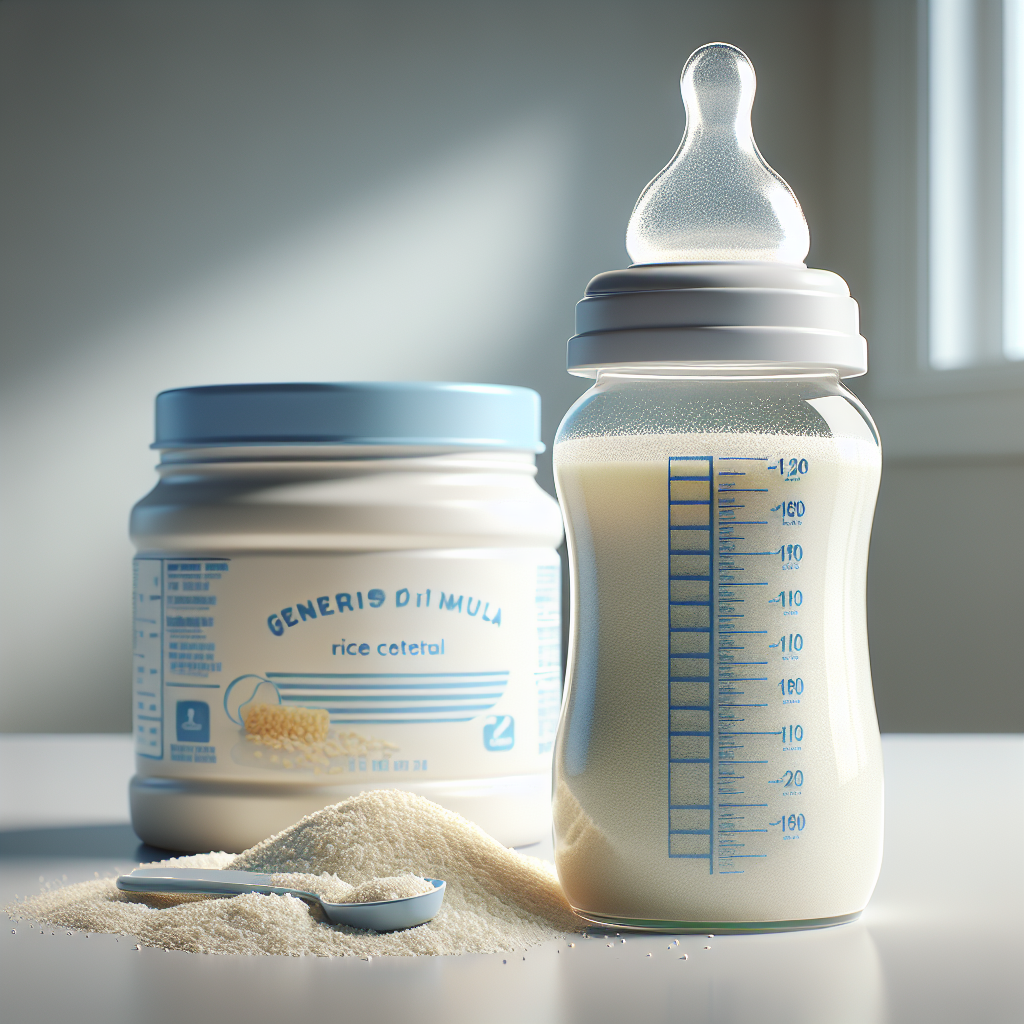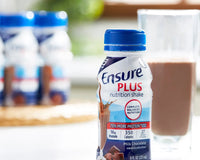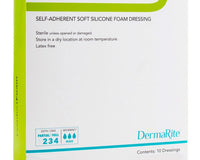Enfamil AR Formula is specifically designed to help manage infant reflux, a common condition where babies spit up frequently. This formula is enriched with rice cereal, which helps to thicken the liquid, making it easier for infants to keep down and reducing the chances of spit-up. Infants with reflux can experience discomfort and feeding difficulties, making it crucial for caregivers to choose the right formula.
Enfamil AR Formula not only addresses reflux but also provides essential nutrients that support your baby's overall growth and development. It contains a blend of DHA and ARA, which are important for brain and eye development. The added rice cereal in the formula helps to create a thicker consistency, which can be particularly beneficial for babies who have difficulty keeping thinner liquids down.
Whether you're a parent, caregiver, or healthcare professional, understanding the benefits and proper use of Enfamil AR Formula can significantly improve an infant's feeding experience. This article will guide you through the steps of preparing Enfamil AR Formula with rice cereal and offer tips on how to incorporate it into your baby's diet effectively. If you're looking to purchase Enfamil AR Formula, order online here for convenient shopping and fast delivery!
Benefits of Adding Rice Cereal
Adding rice cereal to Enfamil AR Formula offers several benefits, particularly for infants experiencing reflux. One of the primary advantages is that it helps to thicken the formula, reducing the likelihood of spit-up and ensuring that the baby retains more of the nutrients during feedings. This can lead to fewer feeding disruptions and more consistent growth patterns.
Rice cereal is also a gentle introduction to solid foods, providing a smooth texture that is easy for infants to digest. It is often the first step in transitioning from a liquid-only diet to more varied textures and flavors. The thickened formula can help infants feel fuller for longer periods, potentially leading to better sleep patterns and fewer nighttime awakenings.
In addition to its digestive benefits, rice cereal is fortified with essential vitamins and minerals, such as iron. Iron is crucial for developing healthy red blood cells and preventing anemia, a condition that can cause fatigue and developmental delays. By incorporating rice cereal into Enfamil AR Formula, you not only address reflux issues but also contribute to your baby's overall nutritional needs.
Moreover, the added rice cereal can help in weight management for infants who may not be gaining weight adequately due to frequent spit-ups. By ensuring that more of the formula stays down, babies can absorb more calories and nutrients, aiding in healthy weight gain and development.
Step-by-Step Preparation Guide
Preparing Enfamil AR Formula with rice cereal may seem daunting at first, but following a step-by-step guide can make the process straightforward and stress-free. Here’s a detailed guide to help you:
- Wash Your Hands: Begin by thoroughly washing your hands with soap and water to maintain hygiene. Cleanliness is essential when preparing infant formula to prevent contamination.
- Sanitize Bottles and Nipples: Sterilize all feeding equipment, including bottles, nipples, and mixing utensils. Boiling them for 5 minutes or using a sterilizer can be effective.
- Measure Water: Boil fresh water and let it cool down to a lukewarm temperature. Pour the appropriate amount of water into a clean bottle. Always follow the water-to-formula ratio as specified on the formula packaging.
- Add Enfamil AR Formula: Use the scoop provided in the formula container to add the correct amount of Enfamil AR Formula to the bottle. Level off each scoop with a clean, flat surface to ensure accuracy.
- Introduce Rice Cereal: Gradually add the recommended amount of rice cereal to the formula. Generally, about one teaspoon of rice cereal per ounce of formula is a good starting point, but consult your pediatrician for personalized advice.
- Mix Thoroughly: Secure the bottle lid and shake it well until the formula and rice cereal are fully blended. Make sure there are no clumps, as this can affect the flow through the nipple.
- Check Temperature: Test the temperature by placing a few drops on the inside of your wrist. It should feel warm, not hot, to the touch.
- Feed Your Baby: Once the formula is ready and at the correct temperature, proceed with feeding your baby. Observe for any signs of discomfort or allergies, especially when introducing rice cereal for the first time.
By following these steps, you can ensure a smooth and safe preparation process for your baby’s feedings. Always consult your pediatrician for tailored advice and adjustments based on your baby's unique needs.
Safety Tips for Feeding

Ensuring the safety of your baby during feeding is paramount. When using Enfamil AR Formula with rice cereal, it’s crucial to follow safety guidelines to protect your little one’s health and well-being. Here are some key safety tips to consider:
- Consult Your Pediatrician: Before introducing rice cereal into your baby’s diet, always consult your pediatrician. They can provide personalized advice and ensure that this addition is suitable for your baby’s specific health needs.
- Follow Mixing Instructions: Adhere strictly to the mixing instructions provided on the formula and rice cereal packaging. Incorrect ratios can lead to nutritional imbalances or digestive issues.
- Monitor for Allergies: When introducing any new food, including rice cereal, monitor your baby for signs of allergies. Symptoms may include rash, vomiting, diarrhea, or difficulty breathing. If any of these occur, stop feeding immediately and consult your healthcare provider.
- Maintain Proper Hygiene: Always wash your hands and sterilize feeding equipment before preparation. This minimizes the risk of contamination and potential infections.
- Avoid Overfeeding: Pay attention to your baby’s hunger and fullness cues. Overfeeding can lead to discomfort and potential health issues. Allow your baby to eat at their own pace and stop when they signal they are full.
- Store Formula Correctly: Prepared formula should be stored in the refrigerator and used within 24 hours. Discard any leftover formula that has been sitting out for more than an hour to prevent bacterial growth.
- Check Expiration Dates: Regularly check the expiration dates on your formula and rice cereal packages. Using expired products can compromise your baby’s health.
- Maintain Upright Position: During and after feeding, keep your baby in an upright position to reduce the risk of reflux and choking. This is especially important when using thicker formulas like Enfamil AR with rice cereal.
By implementing these safety tips, you can create a secure feeding environment for your baby, ensuring they receive the nutrition they need without compromising their health.
Common Concerns and Solutions

When using Enfamil AR Formula with rice cereal, caregivers often encounter various concerns. Addressing these effectively ensures a smoother feeding experience for both the baby and the caregiver. Here are some common concerns and their solutions:
- Clogged Nipples: Thicker formulas can sometimes clog bottle nipples. To prevent this, use a nipple with a larger hole specifically designed for thicker feeds. You can also periodically check and clear the nipple during feeding.
- Digestive Issues: Some babies may experience gas, constipation, or other digestive issues when starting on rice cereal. Gradually introducing the cereal and ensuring proper hydration can help alleviate these problems. If issues persist, consult your pediatrician.
- Spitting Up: While Enfamil AR is designed to reduce reflux, some babies may still spit up occasionally. Keeping your baby in an upright position during and after feeding, and feeding smaller amounts more frequently, can help minimize spit-ups.
- Allergic Reactions: If you notice signs of an allergic reaction such as rash, swelling, or difficulty breathing, discontinue use immediately and seek medical advice. It’s essential to introduce new foods gradually and observe for any adverse reactions.
- Refusal to Eat: Sometimes, babies might refuse the new texture or taste of the formula mixed with rice cereal. Patience is key. Try introducing the mixture slowly and mixing it to the right consistency. If refusal continues, consider consulting with a pediatric nutritionist.
- Formula Separation: Over time, the formula and cereal mixture might separate. Shake the bottle well before each feeding to ensure a consistent mix. If separation persists, you might need to adjust the mixing technique or ratio slightly.
- Inadequate Weight Gain: If your baby isn’t gaining weight as expected, it’s important to consult with your healthcare provider. They can offer guidance on caloric needs and ensure your baby is receiving adequate nutrition.
By addressing these common concerns proactively, you can ensure a more successful feeding journey with Enfamil AR Formula and rice cereal, promoting better health and well-being for your baby.
Consulting Your Pediatrician

Before making significant changes to your baby's diet, it’s crucial to consult with your pediatrician. They can provide personalized advice based on your baby's unique health needs and circumstances. Here’s why consulting your pediatrician is essential when using Enfamil AR Formula with rice cereal:
- Personalized Guidance: Every baby is different. Your pediatrician can offer tailored recommendations on the appropriate amount of rice cereal to add to the formula, ensuring it meets your baby's nutritional and developmental needs.
- Monitoring Reactions: Introducing any new food carries the risk of allergic reactions or digestive issues. Your pediatrician can guide you on signs to watch for and steps to take if your baby exhibits any adverse reactions.
- Evaluating Growth and Development: Regular check-ups allow the pediatrician to monitor your baby's growth and development, ensuring they are receiving adequate nutrition. If any adjustments are needed, your pediatrician can provide timely advice.
- Addressing Concerns: If you have any concerns about your baby's feeding habits, reflux, or overall health, your pediatrician is the best resource to address these issues. They can help you navigate challenges and find effective solutions.
- Expert Recommendations: Pediatricians stay up-to-date with the latest research and guidelines on infant nutrition. They can provide evidence-based recommendations to support your baby’s health and well-being.
By maintaining open communication with your pediatrician, you can ensure that you’re making informed decisions about your baby’s diet and addressing any concerns promptly. This collaborative approach promotes your baby’s health and helps you feel more confident in your feeding choices.
For convenient shopping and fast delivery of Enfamil AR Formula and other health products, order online here and experience the Cart Health difference!









